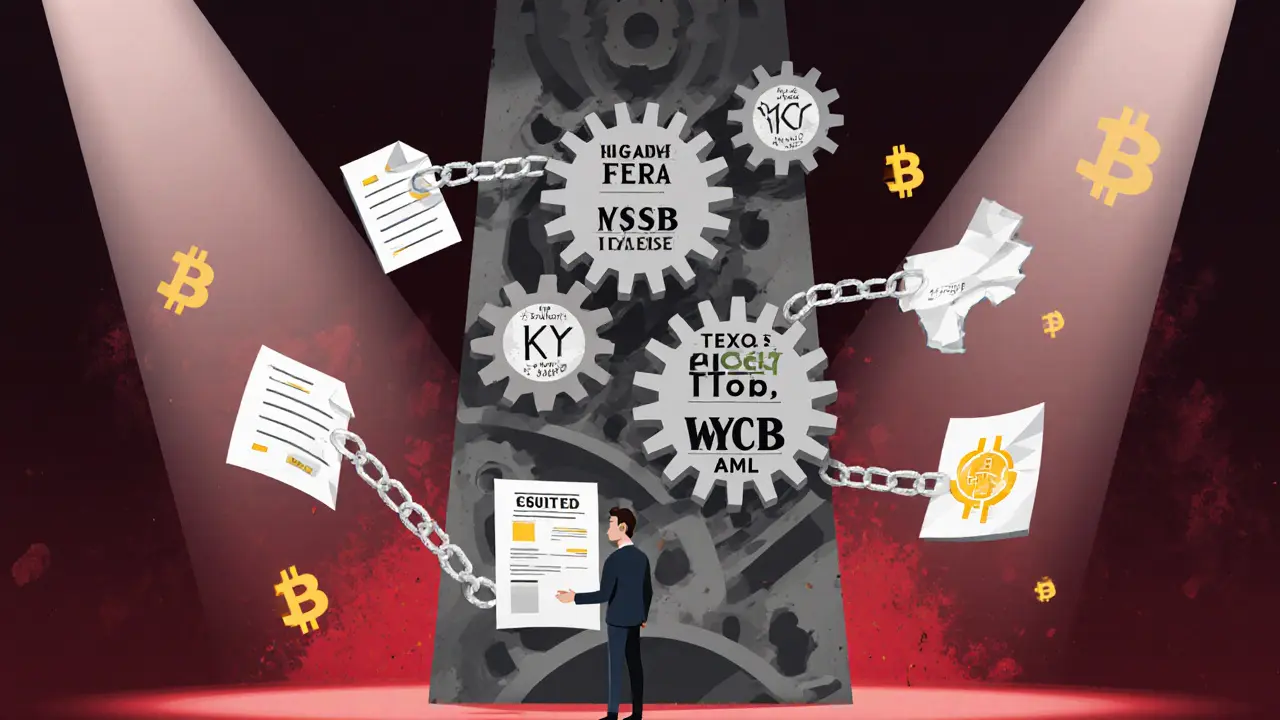
DeFi lending uses algorithmic interest rate models to balance supply and demand without banks. Learn how Aave, Compound, and MakerDAO set rates, why they spike, and how to use them safely.
When you hear Blockchain & Finance, the intersection of decentralized ledgers and traditional money systems that’s rewriting how value moves across borders. Also known as crypto finance, it’s not just about trading Bitcoin—it’s about building legal, secure, and scalable systems that banks and governments now have to reckon with. This isn’t science fiction. In 2025, if you want to run a crypto exchange in the U.S., you need more than a website and a wallet—you need a crypto exchange license, a legal permit issued by state and federal authorities to operate as a money transmitter in the digital asset space. That means registering with FinCEN as a MSB registration, a federal requirement for any business handling money transfers, including cryptocurrency, and often getting approved under state rules like New York’s BitLicense, a strict regulatory framework that forces crypto firms to prove they have strong controls over customer funds and identity verification.
Behind every legal crypto platform is a hidden backbone: AML compliance, a set of rules and tools designed to stop money laundering, terrorist funding, and fraud in digital finance. It’s not optional. The federal government doesn’t just ask for it—they audit it. You need systems that track every transaction, flag suspicious activity, and verify users’ real names and addresses. That’s not just software—it’s legal infrastructure. And it costs money. Most operators need at least $500,000 in capital just to start. Skip the compliance steps, and your business gets shut down fast. This is why so many small crypto projects fail before they even launch. The real barrier isn’t technology—it’s regulation.
What you’re seeing now isn’t the end of crypto’s wild west phase—it’s the beginning of its adulthood. The same rules that apply to banks are slowly being applied to crypto firms. That’s why you’ll find guides here on how to get licensed, what paperwork to file, where to find the right legal help, and how to avoid the traps that sink 80% of new exchanges. You’ll also learn how AML tools actually work in practice—not just what they’re supposed to do, but how real operators use them day to day. This isn’t theory. These are the exact steps people are taking right now to build legal, lasting businesses in this space.

DeFi lending uses algorithmic interest rate models to balance supply and demand without banks. Learn how Aave, Compound, and MakerDAO set rates, why they spike, and how to use them safely.

Blockchain is transforming insurance by automating claims, cutting fraud, and enabling instant payouts through smart contracts. Learn how it's changing travel, crop, and health insurance - and what's holding it back.

Getting a crypto exchange license in 2025 requires federal MSB registration, state-specific licenses like BitLicense, robust AML/KYC systems, and $500K+ in capital. Learn the steps, costs, and pitfalls to avoid shutdowns.